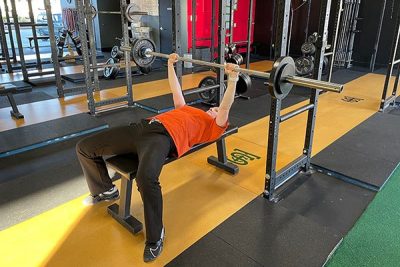 After an accident or surgery, patients are often prescribed physical and occupational therapy to help with their orthopedic rehabilitation. While most of the work is done in the hospital and at the therapist’s office, patients are often given “homework” to do. This usually consists of a list of exercises to do before their next therapy visit. Extra equipment may need to be purchased from a home medical equipment supplier. Four common items used include a pedaling machine, ankle weights, wrist weights and a resistance system. One advantage to having this equipment at home is that the person can continue to use it after they have reached maximum medical improvement. It works well for regular exercise regimens as well.
After an accident or surgery, patients are often prescribed physical and occupational therapy to help with their orthopedic rehabilitation. While most of the work is done in the hospital and at the therapist’s office, patients are often given “homework” to do. This usually consists of a list of exercises to do before their next therapy visit. Extra equipment may need to be purchased from a home medical equipment supplier. Four common items used include a pedaling machine, ankle weights, wrist weights and a resistance system. One advantage to having this equipment at home is that the person can continue to use it after they have reached maximum medical improvement. It works well for regular exercise regimens as well.
Pedaling Machine
Regaining leg strength is paramount to increasing mobility and dexterity. A pedaling machine can be used at home to simulate running and jogging before the patient has enough stamina or balance to do it. The person sits in a regular chair and places the apparatus on the floor. This works out the legs without requiring the patient to leave the room.
Ankle Weights
Physical therapists may recommend use of home healthcare supplies such as ankle weights to strengthen the ankles, legs and knees. They come in various sizes. These devices generally wrap around the ankle or lower calf. Various workout drills include
extending the foot forward and bending it back from the sitting position. The patient may also do walking exercises once they regain balance or may do strength training while on a stationary bicycle.
Wrist Weights
Use of free weights strapped to the wrists helps improve hand, wrist, arm and shoulder strength. Mobility and dexterity are improved by simply walking around with them on or by doing exercises. Different amounts of weight can be added to the devices, which often have adjustable straps to fit different size wrists. Some types of wrist weights are designed with protective coatings to prevent damage to the skin about the wrist area. Flexion and extension exercises help improve use of the arms, wrists and hands.
Resistance System
Regaining strength, coordination and endurance is one of the challenges patients face after an accident or surgery. It takes time and practice to be able to move about normally. Lifting, driving and basic daily activities take arm strength and mobility. Use of a resistance system with other homecare medical equipment will help the patient recover sooner. Before purchasing one, however, they should consult with a health care professional on what type to buy. Full training before using it is recommended to increase its effectiveness and prevent further injury.





